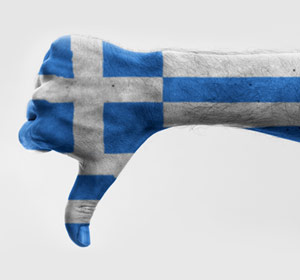Lessons from Greek Financial Woes
 The country that is widely considered to be the cradle of Western civilisation is bankrupt. Its bonds are now rated lower than any other country in the world. With a population of only 11 million, the country that was once regarded as an antidote to Turkey by traditional European powers is not even a shadow of its former self. Without discussing much about what led to this, let us see what lessons we can learn from this situation?
The country that is widely considered to be the cradle of Western civilisation is bankrupt. Its bonds are now rated lower than any other country in the world. With a population of only 11 million, the country that was once regarded as an antidote to Turkey by traditional European powers is not even a shadow of its former self. Without discussing much about what led to this, let us see what lessons we can learn from this situation?
Behind a prosperous country and successful economy is a driving philosophy and a culture that springs from that philosophy. The home of ancient philosophers forgot this. The lesson we draw is that rule of law and fiscal responsibility and independence from temporary foreign influence are more important than democracy or EU membership.
Ironically, the birth-place of democracy may become the death-knell of modern-day party-based popular democracy. As the crisis has been unfolding over years, irresponsible voters have been electing governments that lied the most. Elected governments continued with patronage and entitlement spending while traditional revenue forces were drying up due to the EU economic community — but all the economic knowledge and wisdom in the world, together with institutions of traditional democracy could not help.
The question then is: how can popular democracy bring about necessary changes in such situations? The answer is obvious: by educating and informing people so that they vote the right way, but that is where philosophy and culture come into play. Would it be better to say that democracy should be tailored to each culture and philosophy, and that Westminster democracy may not be the gold standard of democracy?
